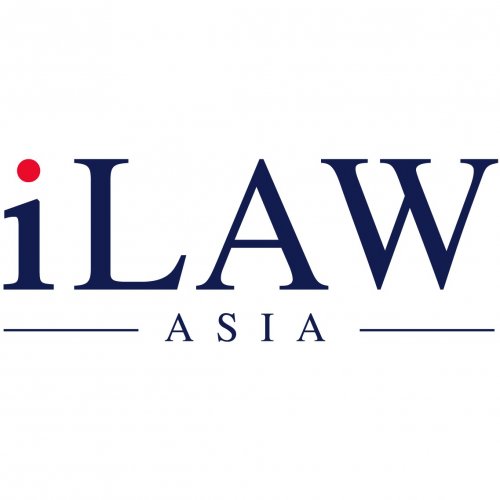Best Patent Lawyers in Yangon
Share your needs with us, get contacted by law firms.
Free. Takes 2 min.
List of the best lawyers in Yangon, Myanmar
About Patent Law in Yangon, Myanmar
Patent law in Yangon, Myanmar, is designed to protect the intellectual property rights of inventors by granting them exclusive rights to their inventions for a certain period. This legal protection encourages innovation and investment by ensuring that inventors can reap the fruits of their labor without undue infringement from competitors. Myanmar's patent system is currently undergoing significant transformation as it aligns more closely with international standards, facilitating greater clarity and protection for patent holders within the region.
Why You May Need a Lawyer
Engaging a lawyer specializing in patent law can be crucial for various reasons. Navigating the complexities of patent applications, ensuring compliance with local and international regulations, and strategizing on intellectual property protection are key aspects where legal expertise is invaluable. Additionally, if a patent dispute arises or if there's any infringement of patent rights, a lawyer can provide essential guidance and representation to resolve such issues effectively.
Local Laws Overview
Myanmar's patent laws are governed under the Myanmar Patent Law 2019, which introduces modern standards and practices in line with international patent systems. Key aspects include the application and registration process, definitions of patentable subject matter, and enforcement of patent rights. Under this legal framework, patents are granted for inventions that are new, involve an inventive step, and are industrially applicable. The law also provides mechanisms for resolving disputes and penalizing infringement, thereby ensuring robust protection for patent holders.
Frequently Asked Questions
What constitutes a patentable invention in Myanmar?
In Myanmar, a patentable invention must be new, involve an inventive step, and be industrially applicable. It should not fall into excluded categories such as scientific theories, methods of agriculture, or any work contrary to public order or morality.
How long does patent protection last in Myanmar?
A patent in Myanmar is typically granted for a period of 20 years from the filing date, provided annual fees are paid to maintain its validity.
Is Myanmar a member of any international patent treaty?
Myanmar is a member of the World Intellectual Property Organization (WIPO) and has shown commitment to harmonizing its laws with international standards, though it is not yet a party to the Patent Cooperation Treaty (PCT).
How can I apply for a patent in Myanmar?
To apply for a patent, you must submit a formal application consisting of a request, description, claims, abstract, and any relevant drawings to the Intellectual Property Rights Department of Myanmar.
Can a foreigner apply for a patent in Myanmar?
Yes, foreigners can apply for patents in Myanmar, but it is advisable to appoint a local representative or attorney to navigate the application process and adhere to local requirements.
What is the process for enforcing patent rights in Myanmar?
To enforce patent rights, patent holders can initiate civil litigation in Myanmar's courts where they can seek injunctions, damages, or any other appropriate legal remedy against infringers.
How does Myanmar address patent infringement?
Patent infringement is taken seriously in Myanmar, with remedies including court-ordered cessation of infringement, monetary compensation to the patent holder, and possible criminal charges against the infringer in severe cases.
Can I license my patent in Myanmar?
Yes, patent holders can license their patents in Myanmar, granting permission to other parties to use the patented invention under agreed terms and conditions.
What happens if my patent application is rejected?
If a patent application is rejected, the applicant can appeal the decision within a stipulated time frame by providing additional evidence or clarification as to why the patent should be granted.
How can I oppose a patent in Myanmar?
Third parties may file an opposition against a patent application within a certain period on the grounds of lack of novelty, inventive step, or industrial applicability, among other reasons.
Additional Resources
Individuals seeking guidance on patent matters in Myanmar can refer to the Myanmar Intellectual Property Department for official information and assistance. Legal professionals and industry associations like the Myanmar Bar Association may also offer support and resources for navigating the patent landscape in Yangon.
Next Steps
If you require legal assistance with patents in Yangon, consider consulting a specialized patent attorney or law firm with expertise in intellectual property rights. They can provide tailored advice, assist with application processes, aid in dispute resolution, and ensure your patent rights are effectively protected and enforced according to Myanmar's legal framework.
Lawzana helps you find the best lawyers and law firms in Yangon through a curated and pre-screened list of qualified legal professionals. Our platform offers rankings and detailed profiles of attorneys and law firms, allowing you to compare based on practice areas, including Patent, experience, and client feedback.
Each profile includes a description of the firm's areas of practice, client reviews, team members and partners, year of establishment, spoken languages, office locations, contact information, social media presence, and any published articles or resources. Most firms on our platform speak English and are experienced in both local and international legal matters.
Get a quote from top-rated law firms in Yangon, Myanmar — quickly, securely, and without unnecessary hassle.
Disclaimer:
The information provided on this page is for general informational purposes only and does not constitute legal advice. While we strive to ensure the accuracy and relevance of the content, legal information may change over time, and interpretations of the law can vary. You should always consult with a qualified legal professional for advice specific to your situation.
We disclaim all liability for actions taken or not taken based on the content of this page. If you believe any information is incorrect or outdated, please contact us, and we will review and update it where appropriate.








